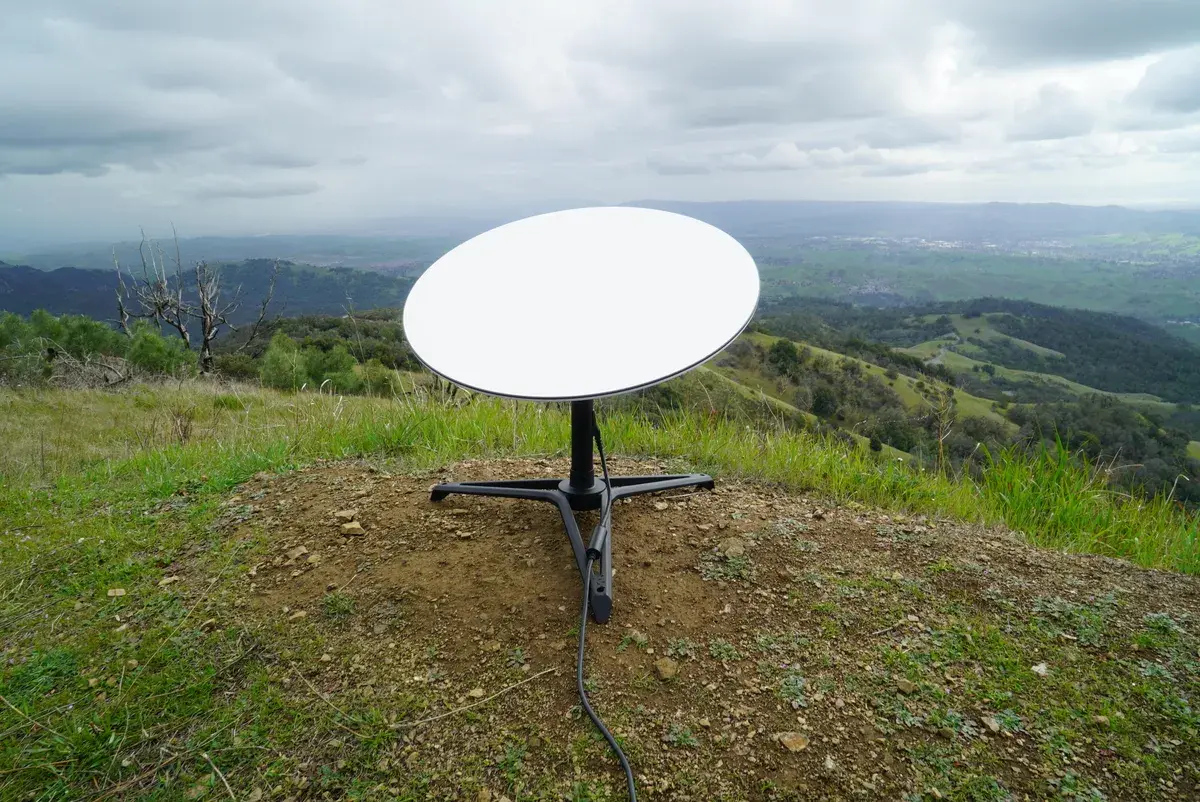Starlink users in Zimbabwe as well as resellers of the service, have been informed that they are in violation of the law if they continue to use or provide the service without first obtaining the necessary licences.
The Postal and Telecommunications Regulatory Authority of Zimbabwe (POTRAZ), which is in charge of regulating communications in Zimbabwe, has issued a warning to citizens about the dangers of using Starlink without a licence.
Read also: Senegal arrests Starlink marketers, suspends internet connectivity
Why Starlink usage is banned
Starlink will need to submit an application for a direct license with POTRAZ in order to be able to offer the service in Zimbabwe. It would appear that Starlink has not yet obtained the necessary license, despite the fact that the company’s website indicates that it intends to start in Zimbabwe in the third quarter of 2023.
Alternately, the regulating body suggests that Starlink might consider forming a distribution partnership with one of the country’s registered public networks in order to offer the service, or it might demand that its customers submit applications for private network licences.
The increasing number of “entities masquerading as licenced satellite service providers” delivering client premises equipment for the provision of internet services through satellite was noted as the cause for concern by the relevant regulator.
In this country in southern Africa, Starlink has become so popular that people are posting images of the service’s router installed on their homes and businesses on various social media platforms. Even the Zimbabwe Broadcasting Corporation, the country’s state broadcaster, has been seen using the service.
It went on to say that even after obtaining a local licence, local resellers were not permitted to distribute satellite-based internet services unless the virtual network operator (VNO) agreements that they had made with the service provider, in this case Starlink, were authorised. This was stated as an additional provision.
Dr G.K. Machengete, director general of POTRAZ, said in a statement. “Being found in possession or operating telecommunication equipment/system without a valid license, certificate or authorisation from POTRAZ is a statutory offence punishable by law.”
Zimbabwe has followed South Africa’s lead in passing significantly more stringent laws regarding the utilisation of Starlink. Since two weeks ago, the nation’s telecommunications authority has prohibited the importation, distribution, and use of Starlink services until the firm owned by Elon Musk satisfies the licencing procedures necessary to operate the service.
POTRAZ Full Statement
The full statement reads as follows:
1) The Postal and Telecommunications Regulatory Authority of Zimbabwe (POTRAZ) regulates the provision of postal and telecommunications services in Zimbabwe. The mandate of POTRAZ includes licensing of postal and telecommunications service providers and enforcement of compliance with licence conditions and applicable laws for the sector. The licences are issued in terms of the Postal and Telecommunications Act [Chapter 12:05) (The Act), as read with the Postal and Telecommunications (Licensing, Registration and Certification) Regulations, 2021,
2) Under the current licensing framework, the provision of internet by means of satellite systems can be done by Public Network Operators or by foreign-based satellite service providers/operators. A foreign-based Satelite Service Provider/Operator can offer services in Zimbabwe using any of the following options:
i) Through duly licensed Public Network Operators. Under this arrangement the Satellite Operator and the local network. Operators enter a Virtual Network Operator (VNO) agreement, that must be approved by the Authority, to ensure that the Public Network Operator meets legal and regulatory requirements stipulated in the licence.
ii) A Satellite Service Provider/Operator can apply for their own licence that would authorise them to provide services.
iii) End users can apply for private network licences, which would authorise the utilisation of externally operated Satellite systems.
3) The Act prohibits the provision of telecommunication services or operation of telecommunication systems, including the possession or control of radio transmission equipment without a licence, certificate or authorisation expressly given by POTRAZ.
4) It has come to the attention of the Authority that there are entities masquerading as licensed satellite service Providers or local agents accredited to distribute customer premises equipment for the provision of satellite-based internet services to unsuspecting members of the public.
5) The public is reminded that only service providers who are licensed or authorised by POTRAZ are permitted at law to provide telecommunication services or distribute/install customer premises equipment for purposes of providing telecommunications services, including satellite-based broadband internet services to customers or end-users.
6) The public is further reminded that local licensed Operators are only allowed to distribute satellite-based internet services if their VNO agreements have been approved by the Authority.
7) Being found in possession of or operating a telecommunication equipment/ system without a valid licence, certificate or authorisation from POTRAZ is a statutory offence punishable by law.
About Starlink
Broadband internet service that is able to enable streaming, online gaming, video calls, and other activities will be provided by Starlink, which is the first and largest satellite constellation in the world. It will be placed in a low Earth orbit.
Starlink provides customers all over the world with internet that is both high-speed and low-latency by utilising cutting-edge satellites and user hardware in conjunction with our extensive experience working with spacecraft and on-orbit operations.
The vast majority of satellite internet services are provided by individual geostationary satellites that orbit the Earth at a distance of 35,786 km. Because of this, the round-trip data time between the user and the satellite is high, which is also referred to as latency. Because of this, it is almost difficult to support activities that require a high data rate, such as online gaming, video calls, or streaming.
Starlink is a satellite network that consists of a constellation of thousands of satellites that circle the Earth at an altitude of around 550 kilometres and cover the whole planet. Latency is greatly reduced because Starlink satellites are located in a low orbit; it is approximately 25 milliseconds, as opposed to more than 600 milliseconds.




